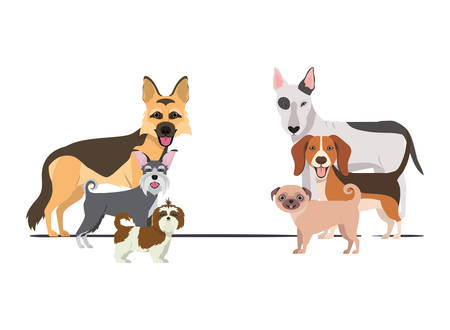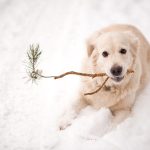1. Introduction to Exotic Pet Nutrition
When it comes to pet care, most people are familiar with the dietary needs of cats and dogs. However, exotic pets—such as reptiles, amphibians, birds, and small mammals—require specialized diets that are often more complex than those of traditional pets. Understanding their unique nutritional requirements is essential for ensuring their health and longevity.
Why Do Exotic Pets Need Specialized Diets?
Unlike common household pets, exotic animals have evolved to thrive on specific diets in their natural habitats. Their bodies are adapted to process particular types of food, and failing to meet these needs can lead to serious health issues. For example, many reptiles require a precise balance of calcium and phosphorus to maintain strong bones, while certain bird species need a variety of fruits, seeds, and proteins to support their high metabolism.
How Exotic Pet Nutrition Differs from Cats and Dogs
To better understand the differences in dietary needs between exotic pets and common household pets like cats and dogs, here’s a comparison:
| Pet Type | Main Dietary Requirements | Common Health Risks Due to Poor Diet |
|---|---|---|
| Cats | High-protein diet, taurine, animal-based nutrients | Obesity, diabetes, urinary tract issues |
| Dogs | Balanced protein, carbohydrates, vitamins | Obesity, joint problems, digestive issues |
| Reptiles (e.g., turtles, lizards) | Insects, leafy greens, calcium supplements | Metabolic bone disease, vitamin deficiencies |
| Birds (e.g., parrots, finches) | A mix of seeds, fruits, vegetables, proteins | Nutritional deficiencies, obesity |
| Small Mammals (e.g., rabbits, guinea pigs) | Timbre hay, fresh vegetables, vitamin C (for guinea pigs) | Dental problems, digestive issues |
The Importance of Researching Your Exotic Pets Diet
If you own an exotic pet or are considering getting one, it’s crucial to research their dietary needs thoroughly. Many commercial pet foods do not provide adequate nutrition for exotic species. Instead, owners may need to supplement with fresh foods or specialty diets tailored to their pet’s specific requirements.
Avoiding Common Mistakes in Exotic Pet Feeding
- Lack of Variety: Many exotic pets need a diverse diet to obtain all necessary nutrients.
- Poor Supplementation: Some species require additional vitamins or minerals that may not be present in standard pet food.
- Misinformation: Relying on outdated or incorrect feeding advice can lead to severe health problems.
The Role of Veterinarians in Exotic Pet Nutrition
An experienced exotic animal veterinarian can guide you in providing the best diet for your pet. Regular check-ups ensure your pet is receiving proper nutrition and help prevent diet-related illnesses.
2. Understanding Species-Specific Dietary Requirements
Exotic pets have unique dietary needs that vary based on their species. Providing the right balance of protein, fat, vitamins, and other nutrients is essential for their health and longevity. Below is a breakdown of dietary requirements for different types of exotic pets.
Reptiles
Reptiles have diverse diets depending on their species. Some are carnivorous, while others are herbivorous or omnivorous. Proper calcium-to-phosphorus balance is crucial for bone health, especially in species prone to metabolic bone disease.
| Type | Main Diet | Key Nutrients |
|---|---|---|
| Carnivorous (e.g., Snakes) | Mice, rats, insects | High protein, moderate fat |
| Herbivorous (e.g., Iguanas) | Leafy greens, fruits | Calcium, fiber, low fat |
| Omnivorous (e.g., Bearded Dragons) | Insects, vegetables, fruits | Protein, vitamins A & D |
Amphibians
Amphibians primarily consume live prey and require a diet rich in protein and moisture. They often need vitamin supplementation to prevent deficiencies.
- Frogs & Toads: Insects such as crickets, worms, and small vertebrates.
- Salamanders: Earthworms, small fish, and insects.
- Nutritional Needs: High protein with added calcium and vitamin D3.
Birds
The dietary needs of birds depend on their species. Many pet birds require a mix of seeds, pellets, fresh fruits, and vegetables to stay healthy.
| Type | Main Diet | Nutritional Focus |
|---|---|---|
| Parrots (e.g., Macaws) | Nuts, seeds, fruits, pellets | B Vitamins, Omega-3s |
| Cockatiels & Budgies | Pellets, millet, leafy greens | Avoid high-fat seeds like sunflower & peanuts |
| Lorikeets | Nectar-based diet with fruit supplements | Sugars from natural sources only |
Small Mammals
Diets for small mammals vary widely. Some are herbivores needing constant fiber intake, while others require a more balanced mix of proteins and fats.
Herbivores (Rabbits & Guinea Pigs)
- Main Diet: Hay (Timothy or Orchard), fresh vegetables.
- Nutritional Needs: High fiber for digestion; guinea pigs need Vitamin C supplements.
Omnivores (Hedgehogs & Sugar Gliders)
- Main Diet: Protein-rich foods such as insects and lean meats; supplemented with fruits and vegetables.
- Nutritional Needs: Balanced protein-to-fat ratio; avoid excess sugar.
No matter what type of exotic pet you own, understanding their specific nutritional requirements is key to ensuring a long and healthy life. Always consult a veterinarian experienced in exotic animals to tailor the best diet for your pet’s needs.

3. Common Mistakes in Feeding Exotic Pets
Providing the right diet for exotic pets can be tricky, and many owners unknowingly make mistakes that can impact their pets health. Understanding these common errors can help ensure your pet gets the nutrition they need to thrive.
Incorrect Portion Sizes
One of the most frequent mistakes is feeding either too much or too little. Overfeeding can lead to obesity, while underfeeding may result in malnutrition. Each exotic species has unique dietary needs, so its essential to research and follow portion guidelines based on their size, age, and activity level.
Feeding Unsafe Foods
Some foods that seem harmless can actually be toxic or harmful to exotic pets. Its important to know which foods should be avoided.
| Exotic Pet | Unsafe Foods |
|---|---|
| Reptiles (e.g., turtles, lizards) | Avoid iceberg lettuce, fireflies, and citrus fruits. |
| Birds (e.g., parrots, finches) | No avocado, chocolate, caffeine, or onions. |
| Small Mammals (e.g., rabbits, guinea pigs) | Avoid dairy products, nuts, seeds, and sugary treats. |
| Aquatic Pets (e.g., fish, amphibians) | No bread, processed human food, or fatty meats. |
Relying on Inadequate Commercial Diets
While commercial pet food may seem like a convenient option, many are not nutritionally complete for exotic pets. Some contain fillers or lack essential vitamins and minerals. Always check ingredients and supplement with fresh, species-appropriate foods when necessary.
Choosing the Right Diet
If youre unsure about your pet’s dietary needs, consult an exotic animal veterinarian or a reputable care guide. A balanced diet tailored to your pet’s species is key to maintaining their health and longevity.
4. The Role of Fresh Foods and Supplements
Providing fresh foods and supplements is essential for maintaining the health of exotic pets. While commercial diets can serve as a base, many exotic animals require additional nutrients from fresh produce, insects, or specialized supplements to thrive. Understanding what to offer and how often can make a significant difference in their overall well-being.
Why Fresh Foods Matter
Fresh fruits, vegetables, and protein sources provide vital vitamins, minerals, and hydration that processed foods may lack. Depending on the species, these foods can mimic their natural diet and prevent common health issues related to deficiencies or imbalances.
Examples of Fresh Foods for Exotic Pets
| Pet Type | Recommended Fresh Foods |
|---|---|
| Reptiles (e.g., Bearded Dragons) | Collard greens, bell peppers, squash, mealworms |
| Small Mammals (e.g., Guinea Pigs) | Carrots, parsley, bell peppers, apples (in moderation) |
| Birds (e.g., Parrots) | Berries, leafy greens, cooked sweet potatoes |
| Aquatic Pets (e.g., Axolotls) | Earthworms, bloodworms, small shrimp |
The Importance of Supplements
Even with a diet rich in fresh foods, some exotic pets require additional supplements to ensure they receive all necessary nutrients. Calcium and vitamin D3 are particularly important for reptiles to prevent metabolic bone disease. Birds may need additional calcium sources like cuttlebone to support beak and bone health.
Common Supplements for Exotic Pets
- Calcium Powder: Essential for reptiles and birds to maintain strong bones.
- Vitamin D3: Helps reptiles absorb calcium properly when they lack UVB exposure.
- Probiotics: Beneficial for small mammals and birds to support gut health.
- Omega-3 Fatty Acids: Supports heart and brain function in certain species like ferrets.
How to Incorporate Fresh Foods and Supplements Safely
When introducing fresh foods or supplements, its important to do so gradually. Some pets have sensitive digestive systems that require slow transitions. Always research appropriate portion sizes and frequency based on the specific needs of your pets species. Additionally, avoid toxic foods such as avocado for birds or onions for small mammals.
Best Practices for Feeding Fresh Foods
- Wash all produce thoroughly: Remove pesticides or contaminants before feeding.
- Cut food into appropriate sizes: Ensure easy consumption based on pet size.
- Monitor for allergies or adverse reactions: Introduce new foods one at a time.
- Avoid overfeeding sugary fruits: Limit high-sugar items to occasional treats.
- Provide variety: Rotate different fresh foods to prevent dietary imbalances.
A well-balanced diet that includes fresh foods and necessary supplements can greatly improve an exotic pet’s quality of life. By understanding their unique nutritional needs and making informed choices, owners can help ensure their pets remain happy and healthy for years to come.
5. Tips for Monitoring Your Pet’s Health Through Diet
Ensuring your exotic pet gets the right nutrition is essential for its overall health and longevity. Since exotic pets have unique dietary requirements, its important to recognize signs of nutritional deficiencies or imbalances early and know when to seek veterinary advice.
How to Recognize Nutritional Deficiencies or Imbalances
Exotic pets may show various signs if they are not getting the proper nutrients. Below are some common symptoms that may indicate a dietary issue:
| Sign | Possible Nutritional Issue |
|---|---|
| Dull or brittle fur, feathers, or scales | Lack of essential fatty acids or protein |
| Weakness or lethargy | Vitamin or mineral deficiency |
| Poor appetite or refusal to eat | Imbalance in diet or digestive issues |
| Abnormal stool (diarrhea or constipation) | Improper fiber intake or dehydration |
| Bone deformities or soft shell (for reptiles) | Calcium or vitamin D deficiency |
When to Seek Veterinary Advice
If you notice any of these signs, it’s crucial to consult a veterinarian who specializes in exotic pets. Some cases may require immediate attention, especially if your pet shows severe weakness, rapid weight loss, or difficulty eating.
Key Indicators That Require Immediate Veterinary Attention:
- Your pet has stopped eating for more than 24-48 hours.
- There are drastic changes in body weight.
- You observe significant behavioral changes, such as hiding excessively or aggression.
- Your pet has persistent diarrhea, vomiting, or bloating.
- You notice abnormal bone structure, soft shells (for reptiles), or difficulty moving.
Maintaining a Balanced Diet for Long-Term Health
To keep your exotic pet healthy, follow these tips:
- Provide a varied diet: Ensure your pet gets all essential nutrients by offering a diverse selection of foods appropriate for its species.
- Monitor portion sizes: Overfeeding and underfeeding can both lead to health problems.
- Ensure proper hydration: Many exotic pets require specific humidity levels or access to fresh water at all times.
- Supplement wisely: Some pets may need calcium, vitamin D, or other supplements—always consult with a vet before adding them.
- Keep track of eating habits: Sudden changes in appetite could be an early warning sign of illness.
By staying vigilant about your pets diet and health, you can prevent many nutrition-related illnesses and ensure your exotic companion lives a long and happy life.


